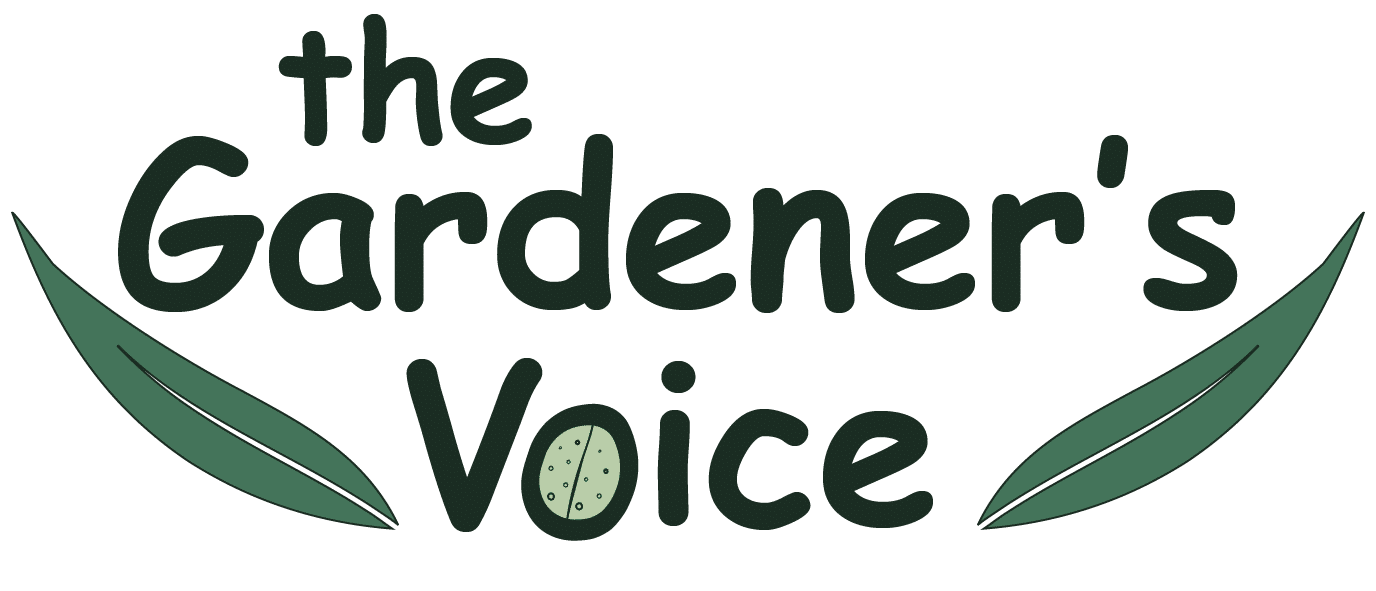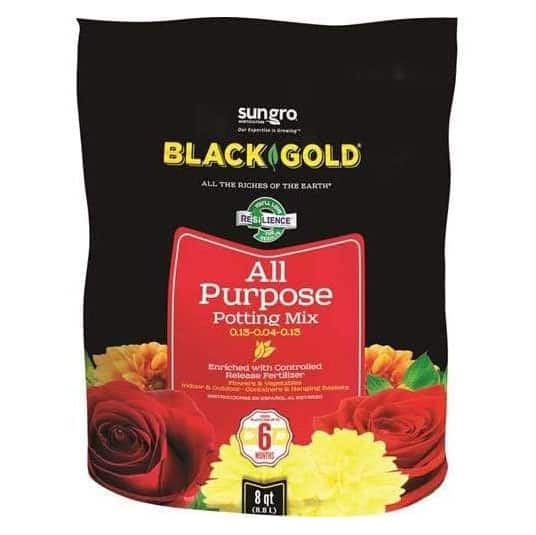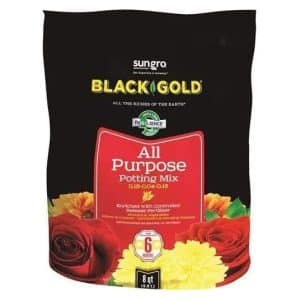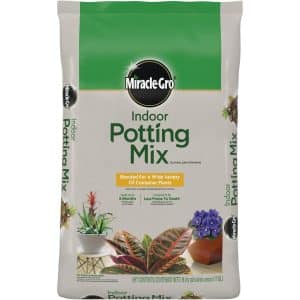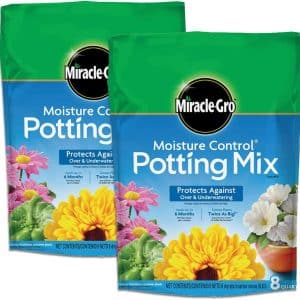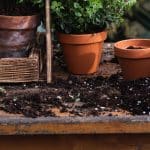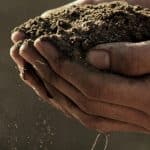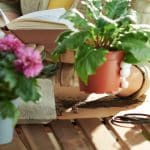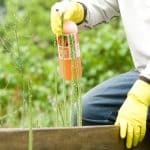Table of Contents
Whether you fancy yourself a green thumb or just tipping your toe into herb gardening, getting the best soil for your garden can mean the difference between a bountiful harvest and a rough season. But don’t get your boots in a knot!
This is your guide to the perfect soil for your indoor herbs or outdoor herb garden. We’re talking about everything – from the best-growing medium to the key nutrients that’ll send your herbs skyrocketing to the stars, and maybe even a bit about your favorite herbs.
We’ll also explain why a balance of moisture in the soil is like the Goldilocks zone for your herbs. Whether you’re planting perennial herbs like those old friends who stick around or annual herbs that visit for a season, your soil’s gotta work for them all.
So, let’s get our hands dirty and dive right in!
Importance of Choosing the Perfect Soil for Your Herbs
Turns out not all dirt is the same, and your herbs know it. The soil they chill in plays a big role in their growing season. See, the best potting herb soil has all the nutrients your green buddies need to party all growing season. Plus, it helps the roots drink up water without drowning them.
But one size doesn’t fit all when it’s time to grow herbs. Just like different folks are different, different herbs have their needs. Some, like sage and thyme, don’t mind hanging out in clay soils, while basil and parsley-like things are a bit lighter.
Indoor herbs need a different mix than outdoor ones. If you’re planting your herbs in containers, you might want to add some coconut coir and slow-release fertilizer for the best results.
Factors to Consider in Selecting the Ideal Herb Soil
Now, before you select a soil to spritz over your herbs for them to grow, you must consider the following factors that make for the star soil;
Location of Your Herb Garden
Your favorite herbs are like you and the recliner – they have their sweet spots. Some herbs love the great outdoors, lapping up direct sunlight, while others prefer the cozy indoors, away from the intense heat. Know their happy place before you start planting.
Soil pH Level
It’s not high school chemistry, but the soil pH level is pretty darn important. It’s like the mood of the soil. Most herbs like their soil not too acidic, not too alkaline, just right. The sweet spot is usually between 6 and 7.
Nutrients Present in the Soil
Like a well-balanced breakfast, your soil needs the right mix of nutrients to get your herbs through the day. There’s the big daddies – Nitrogen, Phosphorus, and Potassium. They’re like the main gears in the herb-growing machine.
Then there are the quiet but essential nutrients, like iron and zinc, that keep things running smoothly. And don’t forget the organic matter – it’s like the magic dust that binds it all together.
Soil Moisture and Drainage
If you’re gonna get your hands dirty with herb gardening, don’t overlook the importance of soil moisture and drainage. Too little moisture will leave your plants parched and, well, dried out like a prune. Too much, and they’ll be drenched, like a cat that fell in the bathtub!
The secret is finding that middle zone of soil moisture. And soil without proper drainage will have your plants swimming in water like a fish. So, when selecting soil, look for a kind that holds water well but also allows for good drainage.
Organic vs Non-Organic Potting Soil for Herbs
Here’s another heavyweight match in herb gardening: organic vs non-organic potting soil. Organic soil is like the home-cooked meal of the soil world. It’s packed with natural ingredients that nurture your herbs. It’s usually made up of composted material from gardens or garden centers.
On the other hand, non-organic soil is like the fast food of soil. It’s got synthetic stuff in it, which isn’t necessarily bad, but it’s not as wholesome as the organic stuff.
1. Black Gold 1310102 8-Quart All-Purpose Potting Soil – Overall Best Potting Soil
The Black Gold 1310102 8-Quart All-Purpose Potting Soil is a high-quality potting soil mix with natural ingredients to ensure your plants thrive, like bone meal and earthworm castings. It also has a neutral pH, meaning it’s just right for herbs native to the Mediterranean region.
Plus, the added nutrients encourage robust plant growth. It’s also suitable for indoor and outdoor gardens, like a great pair of jeans. Whether planting in hanging baskets or your garden, it’s a sure win. But, like anything, it’s a bit more expensive than your ordinary garden soil.
Quality doesn’t come cheap, right?
Pros
- Better controlled-release fertilizer
- More moisture retention
- Loose and well-draining
- Convenient packaging
Cons
- Not suitable for all plants
- More expensive than the standard options
2. Miracle-Gro Indoor Potting Mix – Ideal for Indoor Plants
For those of you who prefer indoor herb gardening, don’t worry, I’ve got you covered. Make way for the Miracle-Gro Indoor Potting Mix, the best herb potting soil.
It’s a bit like the real MVP for indoor plants. It’s lighter and more porous, holding onto moisture while draining excess water like a pro. This means your indoor herbs won’t drown while still getting a good drink.
The downside? You can’t just scoop up some soil from your garden and expect the same results. This is specially formulated stuff, after all!
Pros
- Designed for indoor plants
- Contains nutrients
- Good moisture retention
- Well-Draining
- Convenient and easy to use
Cons
- Potential for salt buildup
- The package contains low quantities of soil compared to other brands
3. Miracle-Gro Moisture Control Garden Soil – Excellent for Outdoor Gardens
The Miracle-Gro Moisture Control Garden Soil is a home run for those with an outdoor herb garden. This soil knows how to keep water in check. It’s like a good umpire, ensuring your outdoor plants get the right amount of water without going overboard.
It’s like a first-class ticket for your plants, ensuring they get the right nutrients and moisture. However, you might find it a bit heavy for indoor pots.
Pros
- Moisture control
- Nutrient-Rich
- Suitable for outdoor gardens
- Convenient to use
- Improves soil structure
Cons
- Pricier
- It may not be suitable for all plants
Essential Tips to Successfully Create an Indoor or Outdoor Herb Garden
We’re about to crack the code on creating a wildly successful herb garden. Whether you’re the indoorsy type or you like your feet in the grass, these tips have you covered.
Ideal Light Conditions
Now, we all know how important sunshine is, right? Just like you and me, herbs love a good sunbath. But, some of our favorite herbs – like basil, thyme, or rosemary, prefer full sun.
On the other hand, some herbs, including parsley and cilantro, prefer a bit of shade. Kind of like chilling under a palm tree, instead of lying out on the sand. The trick here is to match the light conditions to the needs of the herbs you’re growing.
Advantages of Planting Similar Herbs Together
Herbs are kinda like people. They like to hang out with those who are similar to them. In this case, we’re talking about their watering and light needs.
Planting similar herbs together makes your job easier because you can care for them in the same way. Plus, container gardening gives you the freedom to rearrange these groups as your herbs grow and their needs change. It’s like a little plant party that never ends! Just be sure to use plastic pots – they retain moisture better and are easier to move around.
Pest Management for Herb Gardens
Now, let’s get into this bug business. It’s not all doom and gloom when it comes to pests in your herb garden. Matter of fact, it’s a case of knowing who’s who in the bug world. Some critters can actually help your garden thrive.
Check your garden plants regularly for signs of pest activity. You’re looking for chewed leaves, misshapen herbs that grow, or a sudden drop in the health of your plants. Don’t forget to check the undersides of leaves, that’s where the sneaky bugs like to hang out.
Just remember, not all insects are bad. Some are beneficial and can help keep the pests at bay. So, before you go all Rambo on the bugs, make sure you know who you’re dealing with. The last thing you want is to wipe out your friendly bugs.
Stick to organic ingredients if you can when dealing with pests. These won’t harm the roots of the plant or the soil or potting mix in your herb containers. And never ever over-water your herb garden. Pests love soggy soil, it’s like a 5-star hotel to them.
Frequently Asked Questions
1. Is special potting soil necessary for herbs?
Special potting soil can be a real game changer for your herbs. Imagine you’re at a buffet, you’d want a little bit of everything, right? That’s exactly how herbs feel about soil.
They like a good mix of nutrients, and special potting soil can provide just that. Plus, it holds onto water just right—not too much, and not too little.
2. What are the advantages of potting herbs?
Now, let’s talk about potting herbs. One of the big perks is that container plants like potted herbs get to have their very own personalized soil. It’s easier to control the environment, so they can retain moisture better.
Plus, if you’ve got pesky critters in your garden, potting your herbs can help protect them.
3. How to retain the quality of potting soil?
Alright, so you’ve got your fancy potting soil. Now how do you take care of it? Well, all you gotta do is remember these golden rules.
Just like potting mixes, good potting soil stays fresh when it isn’t soggy or bone-dry. It needs to be just moist enough; not too wet, not too dry. And hey, a bit of compost or organic material now and then never hurts.
Conclusion
Alright, we set out to find the best dirt for your herb garden, and we found it. Now, you want to keep a scoreboard of the essentials we’ve talked about. Location, pH level, nutrients, and moisture are all part of the game.
Remember, if you’re growing your herbs indoors or outdoors, the soil conditions can wear a different hat. A soil with a slightly acidic pH can be a champ for root growth, and with the right plant food, your herbs will be as robust as a lumberjack!
Choose organic materials like compost or manure over artificial fertilizers. Not just because they’re Mother Nature’s buddies but also because they’re a secret ingredient for flavorful herbs.
And there you have it, folks; the guide to become the champion of herb gardening. So, get your hands dirty, and start planting.

I’m John, a dedicated gardener and blogger with a deep-rooted passion for all things green. My hands are perpetually in the soil, and my heart beats to the rhythm of nature. Through TheGardenersVoice, I aim to share my gardening expertise, offer valuable tips, and most importantly, spread the immense joy of nurturing and cultivating beautiful gardens.
